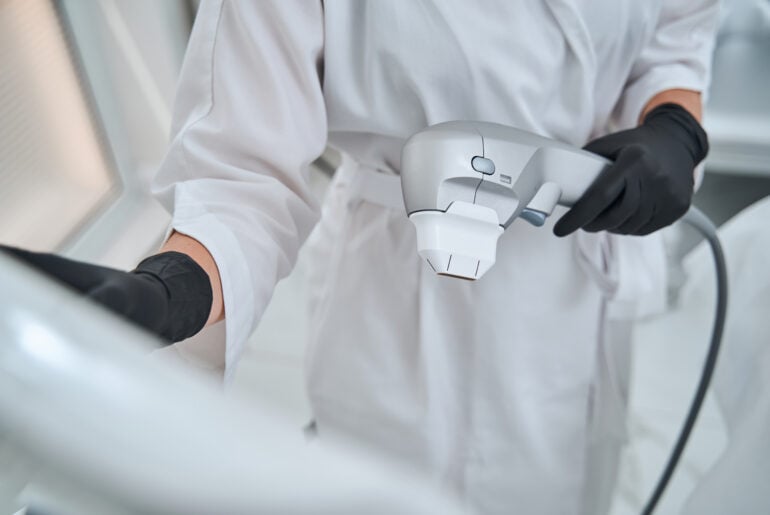The German Accessibility Strengthening Act (BFSG), implementing the European Accessibility Act Directive (EU 2019/882), takes effect on June 28, 2025. While medical devices themselves are not within the scope as a product category, accessibility requirements may still apply where medical device software operates on EAA-covered hardware (e.g., smartphones, tablets). E-commerce services, including webshops selling medical devices directly to patients, must also be EAA-compliant. Certain components of medical or healthcare apps, particularly account creation and registration…
AI as a medical device (AIaMD) in Europe is at a crossroads. As manufacturers grapple with compliance under two separate legal regimes – the EU AI Act (AIA) and EU Medical Device Regulations (MDR) – concerns are mounting around the sluggish pace of Notified Body designations and glaring inconsistencies between the two frameworks. Can the EU stay competitive when the AIA is piling on more regulatory obstacles than ever before? In our blog post, we…

Following our previous post here, we provide an update on the current developments in this area. On April 2, 2025, the US administration announced reciprocal tariffs on all imports into the United States (see here). As it has been widely reported, pharmaceutical products were exempted from these tariffs whereas medical devices were not. Subsequently, on April 9, 2025, the administration announced a 90-day postponement of the reciprocal tariffs for most countries except for China. For…

In brief The newly negotiated Coalition Agreement between Germany’s center-right CDU and center-left SPD political parties outlines a healthcare policy agenda with implications for pharma and med-tech companies. Key measures include reinforcing general practitioners as gatekeepers, expanding Hybrid-DRG hospital reimbursement aiming to shift care to outpatient settings, and reintroducing prompt payment “Skonto” discounts for Rx drugs granted to pharmacies. HTA (AMNOG) pricing rules will be maintained, though “guardrails” limiting reimbursement prices may possibly be reconsidered,…
I. Overview of proposed key changes The Swiss Federal Act on Medicinal Products and Medical Devices (Swiss Therapeutic Products Act, TPA), which has been in force since 2002, is currently undergoing its third revision. The proposed changes are designed to improve the safety and quality of medicinal products and medical devices (therapeutic products). The changes will update the legal framework to match current scientific and technological standards, as well as international laws, especially those…
On 11 March 2025, the European Commission published the Proposal for a Critical Medicines Act 1, a new Regulation aimed at improving the availability of critical medicines in the European Union. The Proposal has however a wider scope and seeks to introduce collaborative procurement mechanisms and information sharing obligations not only for critical medicines but also medicines which are considered of common interest. 1. Securing Supply of Critical Medicines According to European Health Ministers Europe…
Import tariffs have become the priority trade issue since President Donald Trump took office on January 20, 2025, with a wide variety of measures announced and imposed. These tariffs have the potential to disrupt all industries; however, they pose unique challenges for the life sciences industry, in particular the pharmaceutical and medtech industry, whose products have typically not been subject to customs duty on cross-border movements. We have set out below i) a summary of…
On 5 December 2024, the French Government was forced to resign following the vote of non-confidence by the French National Assembly towards the Social Security Financing Bill (“PLFSS”). A new Government was then appointed on 23 December 2024. As a result, 2024 ended without a PLFSS for 2025, leaving the Pharma and MedTech industries in uncertainty, particularly regarding the safeguard clause mechanism. A Special Law To Prevent From Any Shutdown The PLFSS is debated…
After months in the pipeline, it looks like the European Health Data Space (EHDS) is finally entering into force later this year. But what does this mean for your organisation? This is the fourth post in our EHDS series. In this post, we focus on the new product regime for electronic health record (EHR) systems, including the impact on wellness apps, AI systems and medical devices. We examine the latest publicly available draft, dated 24…
The UK’s MHRA has published a statement of policy intent for recognition of international regulators’ approvals of medical devices in Great Britain (GB). If your organisation’s medical device is authorised in any of Australia, Canada, the EU, or USA (together, Comparable Regulator Countries or CRCs), you may be able to leverage this to gain fast-tracked access to the GB market. This means that manufacturers may be able to side-step the full UK authorisation process for…








